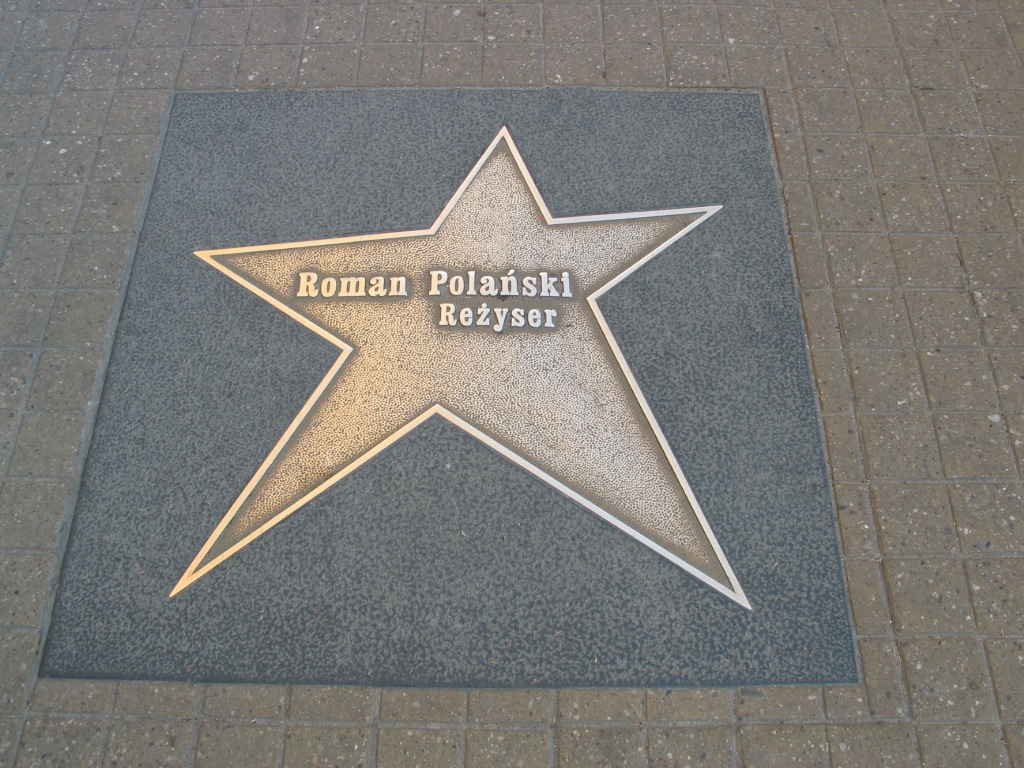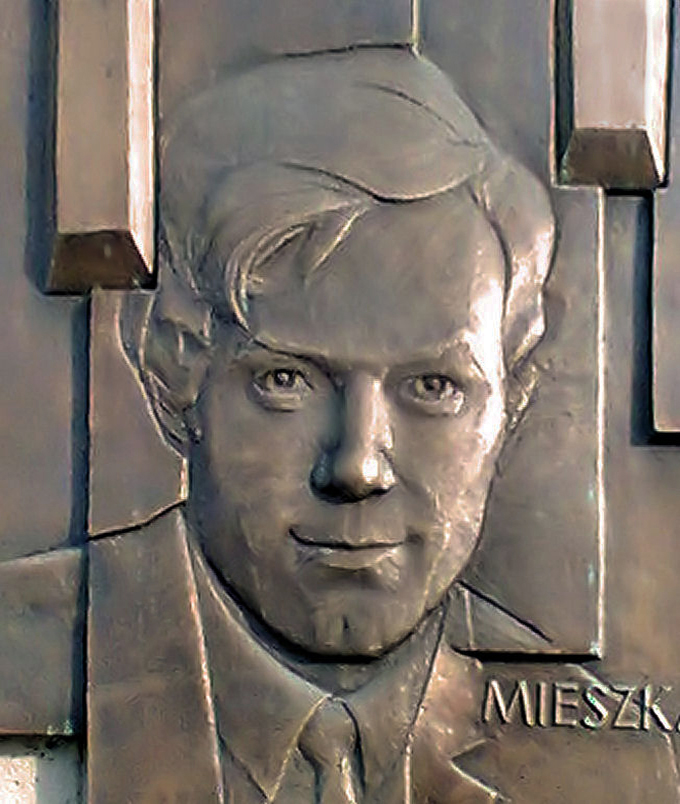|
Two Men And A Wardrobe
''Two Men and a Wardrobe'' ( pl, Dwaj ludzie z szafą) (1958) is a short Polish black and white silent movie directed by Roman Polański. Plot The film features two men, played by Jakub Goldberg and Henryk Kluba, who emerge from the sea carrying a large wardrobe A wardrobe or armoire or almirah is a standing closet used for storing clothes. The earliest wardrobe was a chest, and it was not until some degree of luxury was attained in regal palaces and the castles of powerful nobles that separate accommo ..., which they proceed to carry into a town. Carrying the wardrobe, the two encounter a series of hostile events, including being attacked by a group of youths (one of whom is played by Polanski himself). Finally, they arrive back at a beach and then disappear in the sea. References External linksView ''Two Men and a Wardrobe''at dailymotion.com * 1958 films 1958 short films Fictional duos Films directed by Roman Polanski Films scored by Krzysztof Komeda Films ... [...More Info...] [...Related Items...] OR: [Wikipedia] [Google] [Baidu] |
Roman Polanski
Raymond Roman Thierry Polański , group=lower-alpha, name=note_a (né Liebling; 18 August 1933) is a French-Polish film director, producer, screenwriter, and actor. He is the recipient of numerous accolades, including an Academy Award, two British Academy Film Awards, nine César Awards, two Golden Globe Awards, as well as the Golden Bear and a Palme d'Or. His Polish–Jewish parents moved the family from his birthplace in Paris back to Kraków in 1937.Paul Werner, ''Polański. Biografia'', Poznań: Rebis, 2013, p. 13. Two years later, the invasion of Poland by Nazi Germany started World War II, and the family found themselves trapped in the Kraków Ghetto. After his mother and father were taken in raids, Polanski spent his formative years in foster homes, surviving the Holocaust by adopting a false identity and concealing his Jewish heritage. Polanski's first feature-length film, ''Knife in the Water'' (1962), was made in Poland and was nominated for the United States ... [...More Info...] [...Related Items...] OR: [Wikipedia] [Google] [Baidu] |
Jakub Goldberg
Jakub Goldberg ( Kuba Goldberg) (August 29, 1924 in Warsaw, Poland – April 27, 2002 in Copenhagen, Denmark) was a Polish scriptwriter, assistant director and actor. A graduate of the prestigious Polish Film School in Łódź, Goldberg was a well-known personality in the post-war Polish film community. He worked as a collaborator and assistant director for Polish film directors such as Andrzej Munk, Jerzy Kawalerowicz, and Roman Polanski. As an actor, most notably he starred as one of the two men carrying the wardrobe (opposite Henryk Kluba) in Roman Polanski's award-winning landmark short film '' Two Men and a Wardrobe'' (1958). He also played the electricity meter man in Polanski's short film '' When Angels Fall'' (1959). He was co-writer and assistant director of Polanski's feature debut ''Knife in the Water'' (1962). The Communists forced him to leave Poland, his home, in 1969, and he later became a lecturer at the film academy in Copenhagen. Selected filmography Actor ... [...More Info...] [...Related Items...] OR: [Wikipedia] [Google] [Baidu] |
Henryk Kluba , a Polish constitutional law establishing elective monarchy
*
{{disambiguation, geo ...
Henryk may refer to: * Henryk (given name) * Henryk, Świętokrzyskie Voivodeship, a village in south-central Poland * Henryk Glacier, an Antarctic glacier See also * Henryk Batuta hoax, an internet hoax * Henrykian articles The Henrician Articles or King Henry's Articles (Polish: ''Artykuły henrykowskie'', Latin: ''Articuli Henriciani'') were a permanent contract between the "Polish nation" (the szlachta, or nobility, of the Polish–Lithuanian Commonwealth) and a ... [...More Info...] [...Related Items...] OR: [Wikipedia] [Google] [Baidu] |
Krzysztof Komeda
Krzysztof Trzciński (27 April 1931 – 23 April 1969), known professionally as Krzysztof Komeda, was a Polish film music composer and jazz pianist. Perhaps best known for his work in film scores, Komeda wrote the scores for Roman Polanski’s films ''Knife in the Water'' (1962), '' Cul-de-sac'' (1966), ''The Fearless Vampire Killers'' (1967), and '' Rosemary’s Baby'' (1968). Komeda's album '' Astigmatic'' (1965) is often considered one of the most important European jazz albums. British critic Stuart Nicholson describes the album as "marking a shift away from the dominant American approach with the emergence of a specific European aesthetic." Biography Born Krzysztof Trzciński, he chose Komeda as his stage name only upon graduation from university as a means of distancing himself as a jazz musician from his daytime job in a medical clinic. He grew up in Częstochowa and Ostrów Wielkopolski where in 1950 he graduated from 'liceum (high school) for Boys'. While at school, he ... [...More Info...] [...Related Items...] OR: [Wikipedia] [Google] [Baidu] |
Maciej Kijowski
Maciej (Polish pronunciation: ) is a Polish given name, the etymological equivalent of Matthias. Its diminutive forms are Maciek, Maciuś. Namedays according to Polish calendar: 30 January, 24 February, 14 May Maciej may refer to: Arts and entertainment * Maciej Cieślak (born 1969), Polish guitarist and songwriter * Maciej Dunal (1953–2014), Polish actor and singer * Maciej Fortuna (born 1982), Polish jazz trumpeter, composer and musical educator * Maciej Golubiewski (born 1976), Consul General at the Consulate General of the Republic of Poland in New York City * Maciej Jachowski (born 1977), Polish actor * Maciej Kozłowski (1957–2010), Polish actor * Maciej Łukaszczyk (1934–2014), Polish pianist * Maciej Maleńczuk (born 1961), Polish singer, guitarist and poet * Maciej Małecki (born 1940), Polish composer and pianist * Maciej Musiał (born 1995), Polish actor * Maciej Silski (born 1976), Polish singer * Maciej Stuhr (born 1975), Polish actor, comedian and impress ... [...More Info...] [...Related Items...] OR: [Wikipedia] [Google] [Baidu] |
San Francisco International Film Festival
The San Francisco International Film Festival (abbreviated as SFIFF), organized by the San Francisco Film Society, is held each spring for two weeks, presenting around 200 films from over 50 countries. The festival highlights current trends in international film and video production with an emphasis on work that has not yet secured U.S. distribution. In 2009, it served around 82,000 patrons, with screenings held in San Francisco and Berkeley."San Francisco Film Festival Bucks Economic Trends to Set New Records for Revenue and Attendance." sffs.org. 7 May 2009. San Francisco Film Society. 29 June 2009 In March 2014, Noah Cowan, former executive director of the Toronto International Film Festival, became executive director of the SFFS and SFIFF, replacing Ted Hope. Prior to Hope, the festival was briefly headed by Bingham Ray, who served as SFFS executive director until his death after only ten weeks on the job in January 2012. Graham Leggat became the executive director of the Sa ... [...More Info...] [...Related Items...] OR: [Wikipedia] [Google] [Baidu] |
Adelaide Film Festival
The Adelaide Film Festival (AFF, formerly ADLFF) is film festival usually held for two weeks in mid-October in cinemas in Adelaide, South Australia. Originally presented biennially in March from 2003, since 2013 AFF has been held in October. Subject to funding, the festival has staged full or briefer events in alternating years; some form of event has taken place every year since 2015. From 2022 it takes place annually. It has a strong focus on local South Australian and Australian produced content, with the Adelaide Film Festival Investment Fund (AFFIF) established to fund investment in Australian films. Established in 2003 as Adelaide International Film Festival, it dropped "International" from its title after the inaugural edition, as it dropped its FIAPF membership the following year. It was, however, the first film festival in Australia to introduce an international competition, as well as being the first to fund film production directly. The festival hosts a number ... [...More Info...] [...Related Items...] OR: [Wikipedia] [Google] [Baidu] |
Poland
Poland, officially the Republic of Poland, is a country in Central Europe. It is divided into 16 administrative provinces called voivodeships, covering an area of . Poland has a population of over 38 million and is the fifth-most populous member state of the European Union. Warsaw is the nation's capital and largest metropolis. Other major cities include Kraków, Wrocław, Łódź, Poznań, Gdańsk, and Szczecin. Poland has a temperate transitional climate and its territory traverses the Central European Plain, extending from Baltic Sea in the north to Sudeten and Carpathian Mountains in the south. The longest Polish river is the Vistula, and Poland's highest point is Mount Rysy, situated in the Tatra mountain range of the Carpathians. The country is bordered by Lithuania and Russia to the northeast, Belarus and Ukraine to the east, Slovakia and the Czech Republic to the south, and Germany to the west. It also shares maritime boundaries with Denmark and Sweden. ... [...More Info...] [...Related Items...] OR: [Wikipedia] [Google] [Baidu] |
Wardrobe
A wardrobe or armoire or almirah is a standing closet used for storing clothes. The earliest wardrobe was a chest, and it was not until some degree of luxury was attained in regal palaces and the castles of powerful nobles that separate accommodation was provided for the apparel of the great. The name of wardrobe was then given to a room in which the wall-space was filled with closets and lockers, the drawer being a comparatively modern invention. From these cupboards and lockers the modern wardrobe, with its hanging spaces, sliding shelves and drawers, evolved slowly. Throughout the chronological changes in the form of the enclosure, it has more or less retained its preset function as a place to retain a king’s robe. The word has gained coinage over successive generations as an independent store for among others, preserving precious items for a ruler like gold, well highlighted in King Edward I of England's times. It is also a simple patio where clothes are hung from metal ... [...More Info...] [...Related Items...] OR: [Wikipedia] [Google] [Baidu] |
1958 Films
The year 1958 in film in the US involved some significant events, including the hit musicals '' South Pacific'' and '' Gigi'', the latter of which won nine Academy Awards, including Best Picture and Best Director. Top-grossing films (U.S.) The top ten 1958 released films by box office gross in North America are as follows: Events * January 29 – ''Ascenseur pour l'échafaud'' is an early example of the French New Wave; it is also notable for the improvised soundtrack by Miles Davis. ''Le Beau Serge'' is credited as the first French New Wave feature. * February 16 – ''In the Money'' by William Beaudine is released. It will be the last installment of The Bowery Boys series which began in 1946. * February 27 – Harry Cohn, the remaining founder of Columbia Pictures and one of the last remaining Hollywood movie moguls, dies. * The second installment of Sergei Eisenstein's '' Ivan the Terrible'' is officially released, having previously been shelved for political reasons. It ... [...More Info...] [...Related Items...] OR: [Wikipedia] [Google] [Baidu] |
1958 Short Films
Events January * January 1 – The European Economic Community (EEC) comes into being. * January 3 – The West Indies Federation is formed. * January 4 ** Edmund Hillary's Commonwealth Trans-Antarctic Expedition completes the third overland journey to the South Pole, the first to use powered vehicles. ** Sputnik 1 (launched on October 4, 1957) falls to Earth from its orbit, and burns up. * January 13 – Battle of Edchera: The Moroccan Army of Liberation ambushes a Spanish patrol. * January 27 – A Soviet-American executive agreement on cultural, educational and scientific exchanges, also known as the "Lacy-Zarubin Agreement, Lacy–Zarubin Agreement", is signed in Washington, D.C. * January 31 – The first successful American satellite, Explorer 1, is launched into orbit. February * February 1 – Egypt and Syria unite, to form the United Arab Republic. * February 6 – Seven Manchester United F.C., Manchester United footballers are among the 21 people killed i ... [...More Info...] [...Related Items...] OR: [Wikipedia] [Google] [Baidu] |



.jpg)